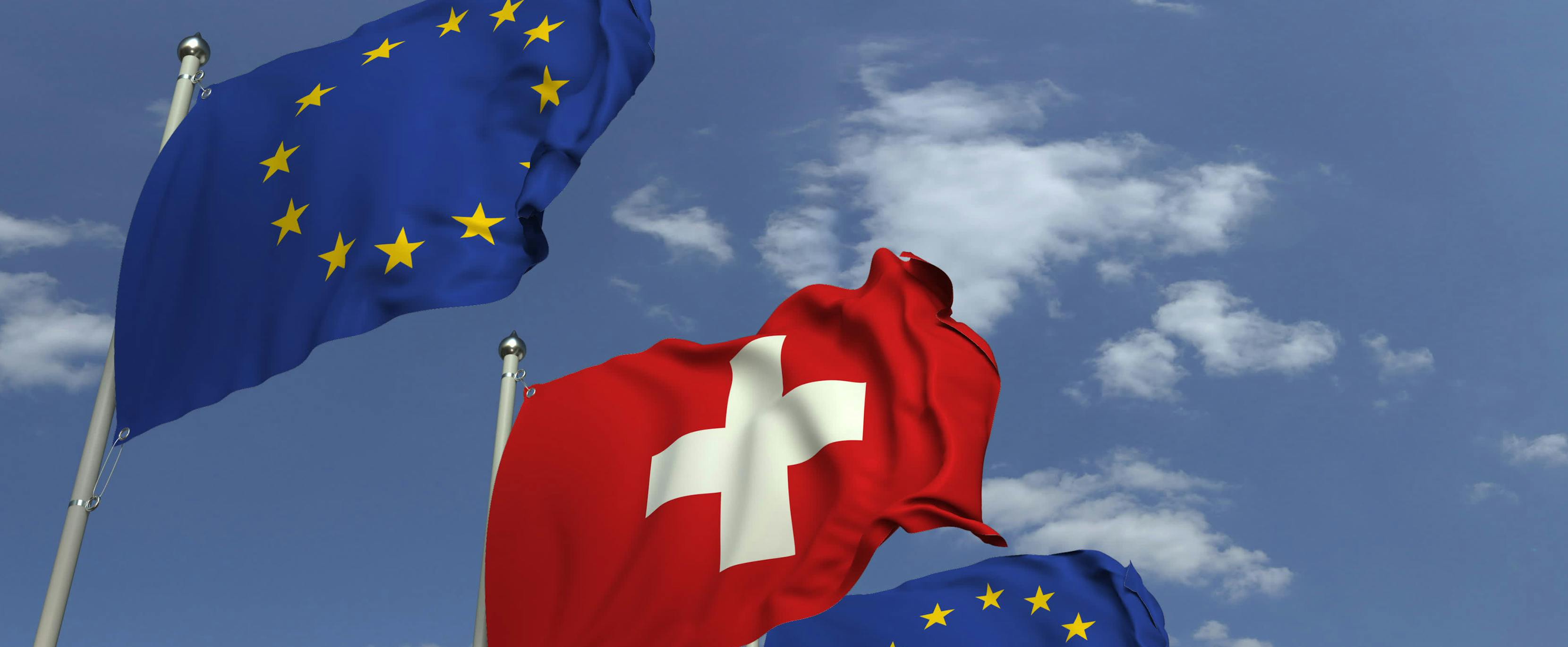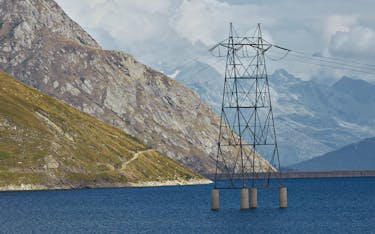
Since the Federal Council adopted the draft negotiating mandate in December 2023, the possibility of an electricity agreement has been discussed almost daily in the Swiss media. Swissgrid is directly affected by the lack of an electricity agreement. One thing is clear: an electricity agreement with the EU is both urgent and essential. To ensure that end consumers in Switzerland are able to obtain sufficient electricity at all times, high enough volumes of electricity must be available, and it must be possible to transport this electricity safely from Swiss power plants and from abroad (imports) to the power outlets. An electricity agreement would strengthen both aspects of security of supply.
Cooperation and participation are the be-all and end-all
First of all, it is important to stress that the Swiss electricity grid is located at the heart of Europe and represents an integral part of the continental European interconnected grid, with 41 cross-border lines. It is therefore impossible to consider «our» grid in isolation. Cooperation with our European neighbours is vital – especially in grid operations. This good cooperation is increasingly jeopardised by the lack of an electricity agreement, because technology is one thing, but politics is another.
To ensure the stability of the interconnected grid, it is vital for everyone to abide by the same rules. There are no specific rules for Switzerland. An electricity agreement would enable Swissgrid to participate fully in the development of these rules and to defend Swiss interests. That makes good cooperation and involvement the be-all and end-all.
What are unscheduled physical power flows and why are they a problem for Switzerland?
Due to the lack of an electricity agreement, Switzerland is excluded from important European platforms and processes. But that doesn’t make any difference to the electricity. It knows no political boundaries and always seeks the path of least resistance. If electricity is generated in one location to supply an end consumer at another location, it will mainly flow via the power lines between the two locations that represent the shortest route. However, if the route is «blocked» or there is congestion, the electricity will follow a diversion to avoid the blockage. This may mean that electricity unexpectedly flows across national borders. All the participants are informed about planned electricity flows via the European platforms and processes. This enables them to detect any «blockages» and «diversions» at an early stage and to take proactive measures if necessary. Since Switzerland is excluded from these considerations, it is increasingly caught by surprise and has to react in real time. That represents a risk for safe grid operations.
«Unplanned flows» of this kind are therefore primarily a technical or infrastructural problem. The introduction of flow-based market coupling in all of Switzerland’s neighbouring countries and the implementation of the «Clean Energy Package» and the 70 percent rule are likely to lead to an increase in unplanned flows in Switzerland, which are already considerable, since Switzerland is so closely connected with neighbouring countries. These electricity flows «clog up» our cross-border lines and could potentially reduce Switzerland’s import capability. Consequently, the lack of inclusion in European coordination processes has a negative impact on grid operations and security of supply.
Why control energy platforms are so important
An important prerequisite for the secure operation of the transmission grid is the balance between electricity generation and consumption. Every second, the same amount of energy must be fed into the grid as is consumed so that the frequency always remains constant at 50 hertz. When unforeseen oscillations occur, Swissgrid uses control energy: it commissions power plants to increase or decrease their production. Swissgrid must procure this control energy on the market. A pan-European market for these ancillary services has been created in the EU with three new platforms. These platforms enable the transmission system operators to maintain the balance between supply and demand for electrical energy and to procure control energy more efficiently, reliably and cost-effectively. An electricity agreement would ensure that Swissgrid can participate on an equal footing in these European market platforms for the secure operation of the transmission system.
And then there is the matter of legal certainty
Legal certainty would also be improved with an electricity agreement. Swissgrid is endeavouring to ensure technical cooperation with neighbouring transmission system operators by means of contracts under private law. However, these contracts are of limited duration, must be renewed annually, have no durable EU legal basis and can be overridden by new EU legislation.
As the operation of the transmission system within the EU is increasingly coordinated in supranational regions, Swissgrid cannot conclude bilateral contracts with individual transmission system operators. Instead, all transmission system operators and regulators in a region must agree to the contract and sign it. The conclusion or renewal of a contract is therefore influenced by many different interests and can be rejected on irrelevant grounds. An electricity agreement would create security by regulating the economic and political aspects that cannot be reflected in a relationship under private law and by establishing permanent cooperation at intergovernmental level that cannot be modified unilaterally.
To what extent could an electricity agreement also regulate certain aspects of cybersecurity?
An electricity agreement could regulate various aspects of cooperation in the electricity sector. In addition to technical cooperation, it would also offer the opportunity to regulate cybersecurity issues. This is important because we do not want our grid to be used as a playground for hackers.
At the moment, Network Codes are the stars of the show with regard to cooperation between European transmission system operators. They form the legal basis. The Network Code on Cybersecurity in particular ensures that we and our European neighbours all adhere to the same rules for protecting ourselves against cyberattacks. The rules define how cyber risks are assessed, what minimum standards apply and how to respond in an emergency.
Security, and hence cybersecurity, is a top priority for Swissgrid. After all, we are a critical infrastructure. In particular, the management of European rules in the area of cybersecurity should be defined as part of the electricity agreement, as these rules have a direct impact on grid operations.



